Workshop
Facing Global Challenges as Partners – Korea and the EU
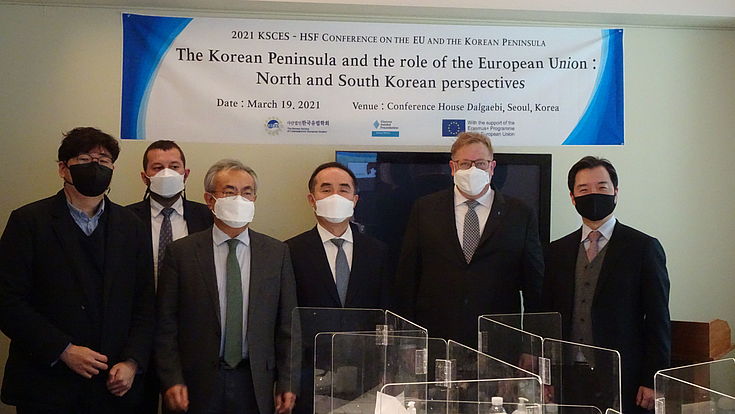
The workshop titled ‘The Korean Peninsula and the Role of the European Union – North and South Korean Perspectives’ was held online and offline and gave various experts from Korea and Europe the possibility to share their knowledge and research. The event consisted out of two sessions. The first session dealt with the Korean perspective and the second focused on the European perspective.
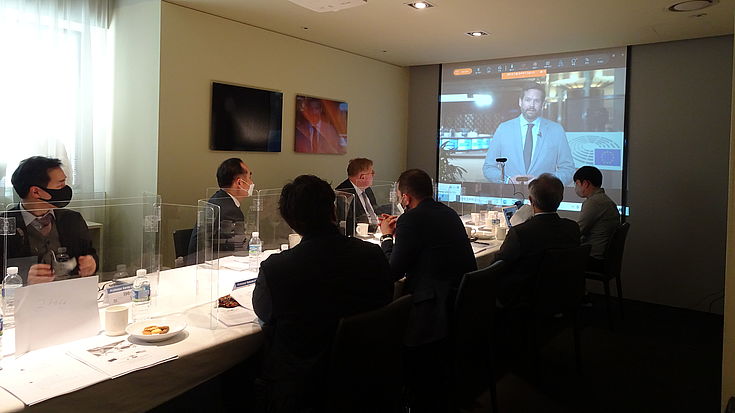
Korean-European Partnership
Prof. Dr. Moo-Sung Lee, President of the Korean Society of Contemporary European Studies, opened the workshop emphasizing the importance of good relations between Korea and the European Union. Afterwards Dr. Bernhard Seliger, Representative of the Hanns Seidel Foundation Korea, held a short welcoming remark, in which he stated that the main objective of the strategic partnership between South Korea and the European Union would not be truly clarified, even after ten years of cooperation. Dr. Seliger said that both partners should set new goals for successful cooperation in future. Following to this remark Lukas Mandl who is a member of the European Parliament and Head of the Delegation of the European Parliament to the Korean Peninsula held a keynote and underlined the importance of good relations between Korea and the EU and stated that both sides would be partners in values. South Korea, a democracy-based rule of law state, would be reliable for the European Union and an important trading partner, he stated.
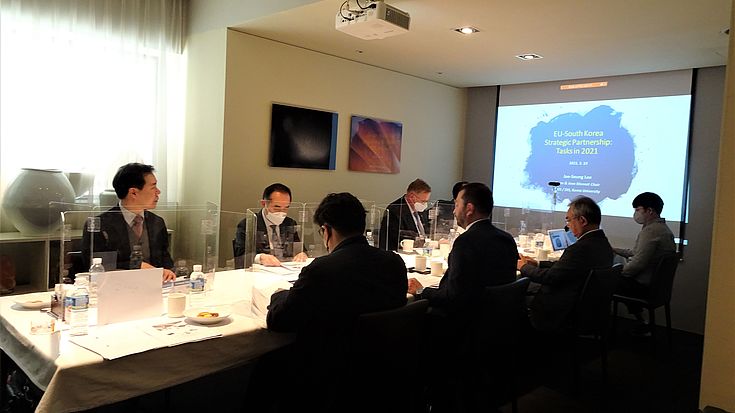
Korean Perspective
The trade agreement between Korea and the EU would be important for both sides, but more lightweight compared with the European relations to China or Japan, stated Dr. Sihong Kim from the Hankuk University of Foreign Studies in his presentation. The European Union and Korea should not take their relationship for granted and should not only focus on issues concerning the Korean peninsula, he underlined. Therefore, both sides should face global and regional challenges. Dr. Jae-Seung Lee of the Korea University had the same impression and demanded higher visibility of both partners beyond the North Korean agenda and a stronger focus on global issues such as digital connectivity, climate change as well as on public and cultural diplomacy. Dr. Sae Won Chung from the Pukyong National University took a closer look at the Strategic Partnership between Korea and the EU. He presented the three pillars of the partnership: Politics, security, and economy. Furthermore, both sides have prepared to strengthen the cooperation in the fields of sustainable development, science, technology, education, and culture. The last speaker of the first session Dr. Moo-Sung Lee stated that the partnership would show and strengthen the EU’s status and identity in the international society and that this would lead to recognition towards the European Union. Following the presentation, a short Q&A session took place which was moderated by Dr. Tomasz Wierzbowski from Hankuk University of Foreign Studies.
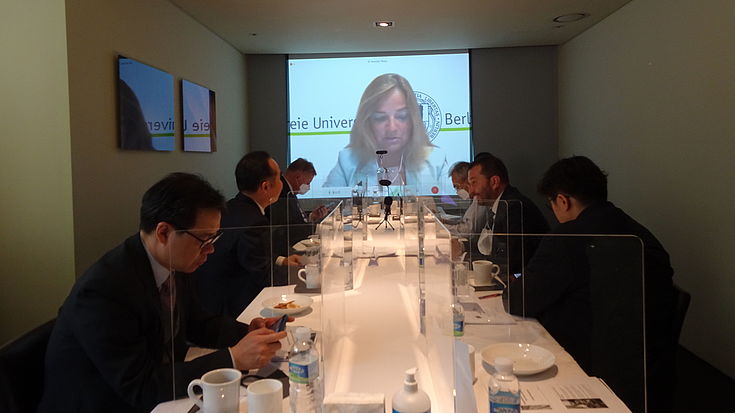
European Perspective
Dr. Tereza Novotna from the Free University Berlin opened the second session which focused on the European perspective. In her presentation, she identified the handling of the US-China competition as one main challenge for the EU-Korea Strategic Partnership. That would be the reason why the European Union and South Korea should deepen their Strategic Partnership, create a new network of like-minded partners, and look for areas where they can prevent Sino-American rivalry from escalating, she stated. Ending her speech Novotna expressed her hope of a strengthening of the EU-Korea partnership through these challenges. Thomas Fisler, former head of Swiss Agency for Development and Cooperation underlined, that the last year was characterized by a lack of information about the situation in the DPRK. Fisler remarked, that the national humanitarian aid was reduced to a few million US-Dollar in 2020 and consisted mainly out of food assistance by the World Food Program using food stocks that already have been in North Korea. The pandemic and the massive isolation due to Covid-19 will worsen the situation for many North Korean citizens and the country itself. He underlined that humanitarian aid would have to start from zero after the pandemic. Professor Dr. Ibisch was the last presenter and talked about Forestry in Europe and Korea. The general functionality of the ecosystem in Korea would be good, he said but the degradation of the environment would still be a problem. Furthermore, he remarked that due to the pandemic the degradation in North Korea could increase. In Europe there is a loss of tree cover was dramatically in the last years and related to intense forestry and climate change. Korea and Europe should think of forests as important ecosystems and create holistic strategies to face these new challenges, he underlined.
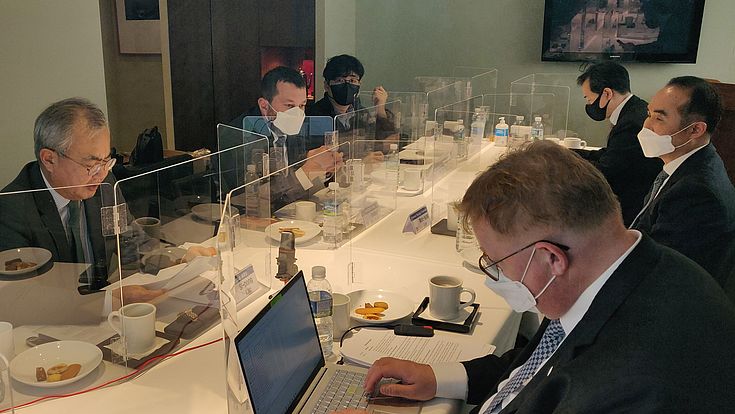
The workshop was a great possibility for the experts to exchange about the different fields of the Strategic Partnership between Korea and the European Union. Furthermore, they discussed future scenarios for stronger cooperation and focused on common challenges. The participants got an overview about the partnership between both sides and insights in the research concerning humanitarian aid in North Korea, environmental protection in the EU and Korea and the partnership itself.
